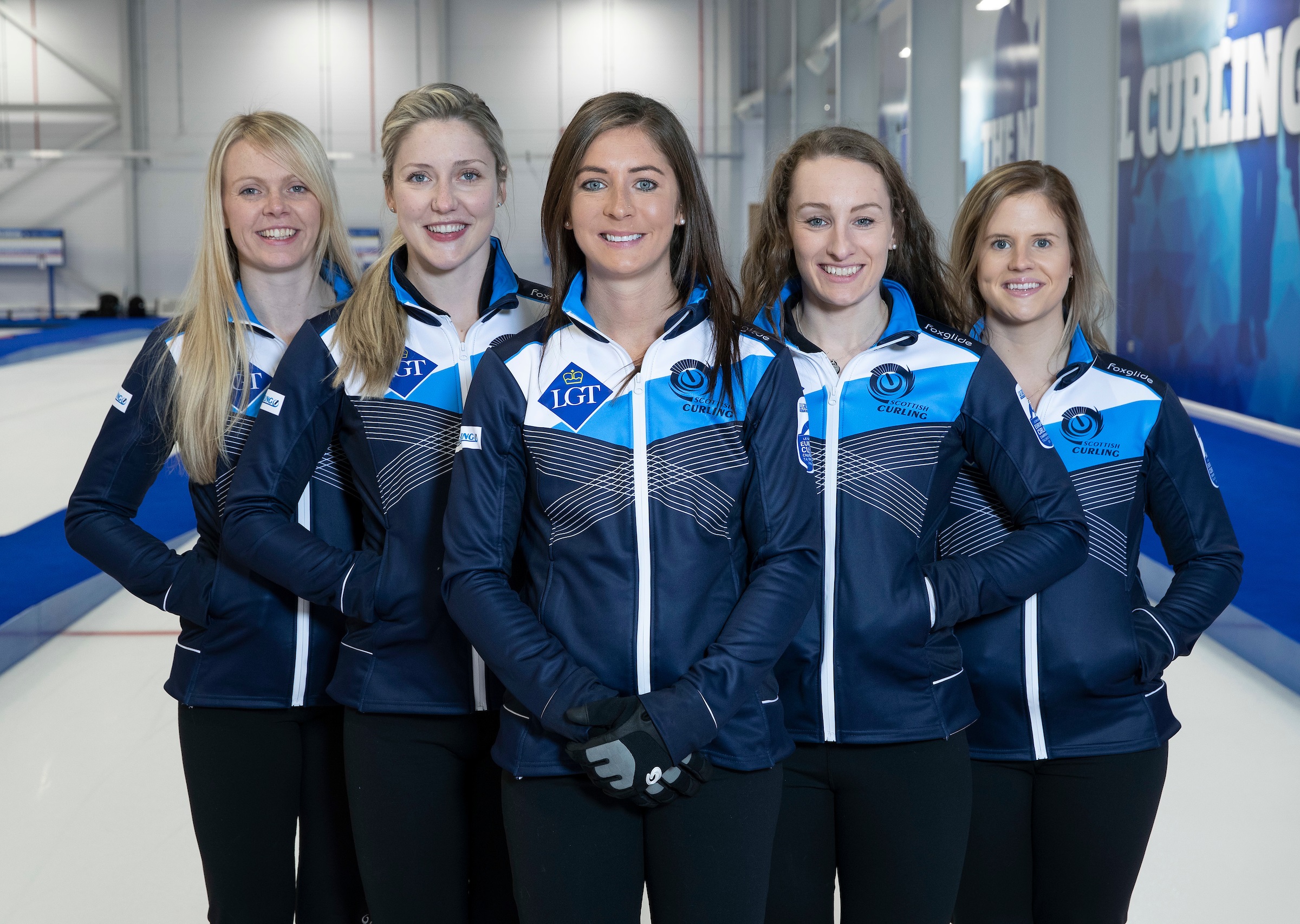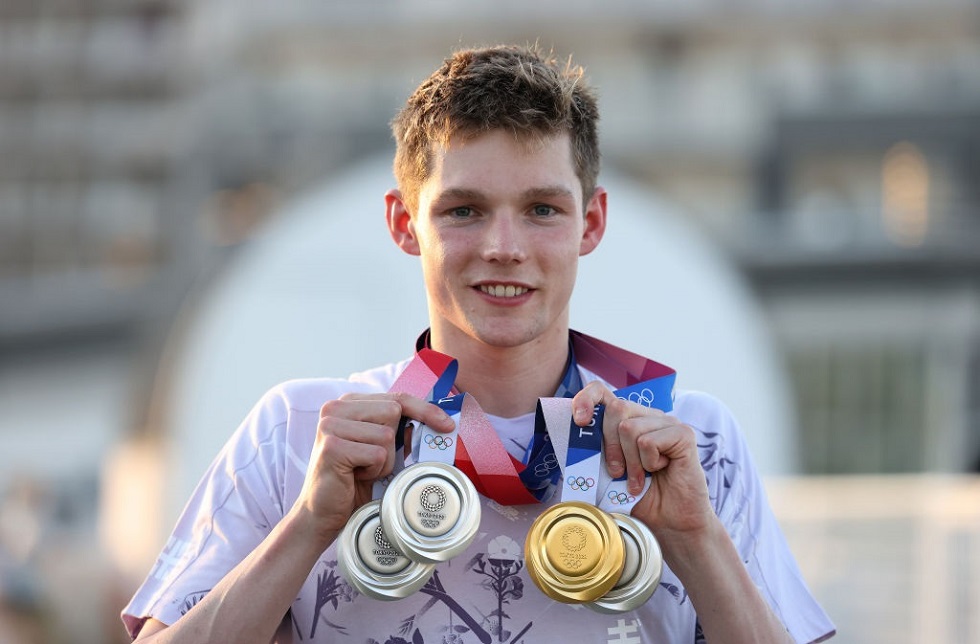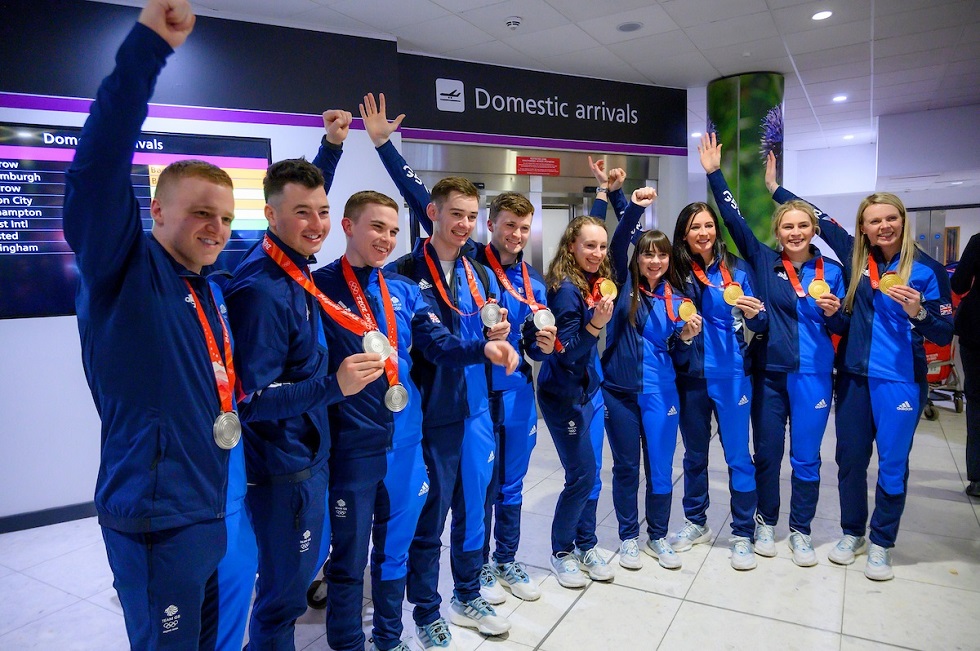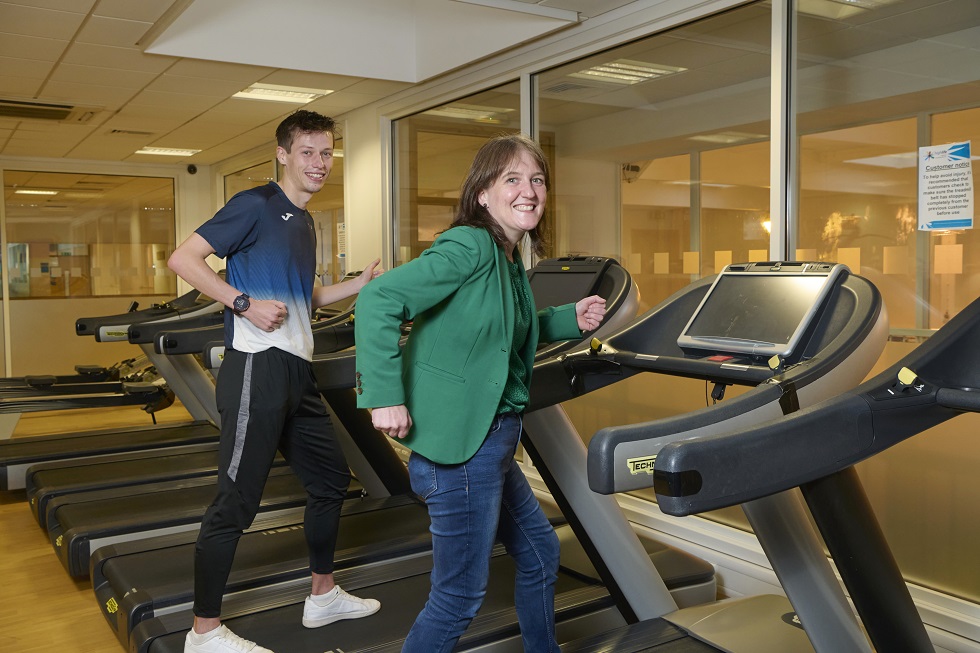This week Olympic bronze medallist Eve Muirhead made her return to European action following hip surgery to address the debilitating pain and arthritis she had been battling for over two years.
Taking the tough decision
Undergoing surgery was not a decision that Eve took lightly. She said: “It crossed my mind a lot that I might never be back on the ice. The hardest part was at the end of last season when it got to the point that it was so painful when I played. I kept a brave face for about two and a half years, but it just got too much, and I knew I couldn’t carry on.” 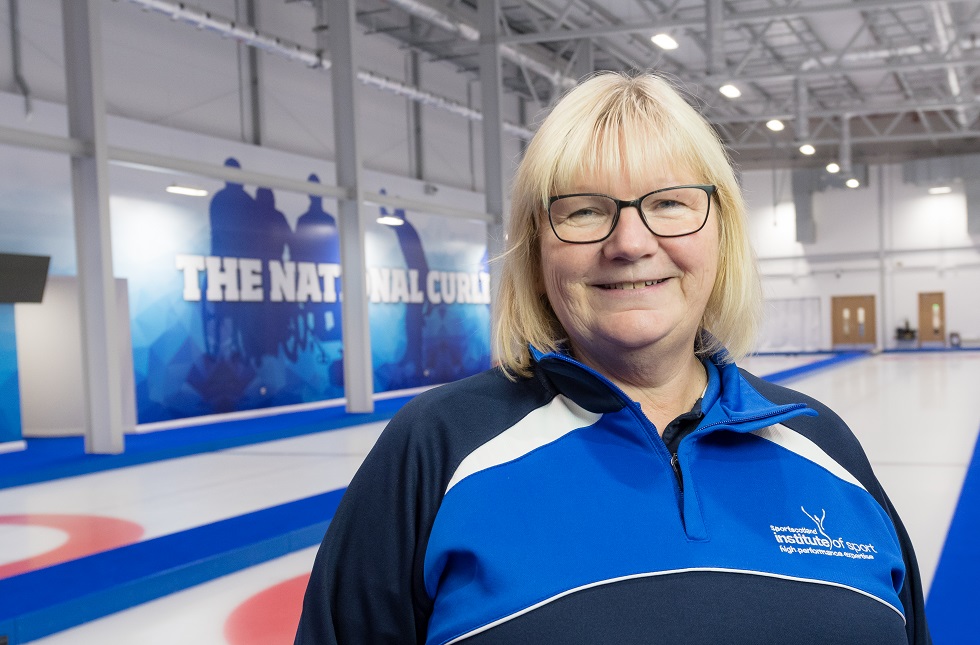
Lindsay Thomson is a physiotherapist at the sportscotland institute of sport who works on the in-house curling programme. Explaining how the team worked with Eve to help her evaluate her options, she said: “We helped Eve before the operation to support her in making decisions, looking at where she was, what she wanted to do, how she wanted to improve and what the best route to achieve that would be.
"In conjunction with Niall Elliott, head of sport medicine at the institute, we chose a consultant who had real expertise in that area and I went with her to the appointment as she had lots of decisions to make and things to think about.”
The surgery went well, and it was time to put the meticulous rehab plan into place.
Return to performance
Dave Leith, physical preparation coach at the sportscotland institute of sport, works closely with Lindsay on the curling programme and was an integral part in planning Eve’s rehab. He said: “We had a detailed ‘return to performance’ plan in place for Eve which is a staged training plan. We look at where we are trying to get to and work back the way, almost to the day of the operation.” 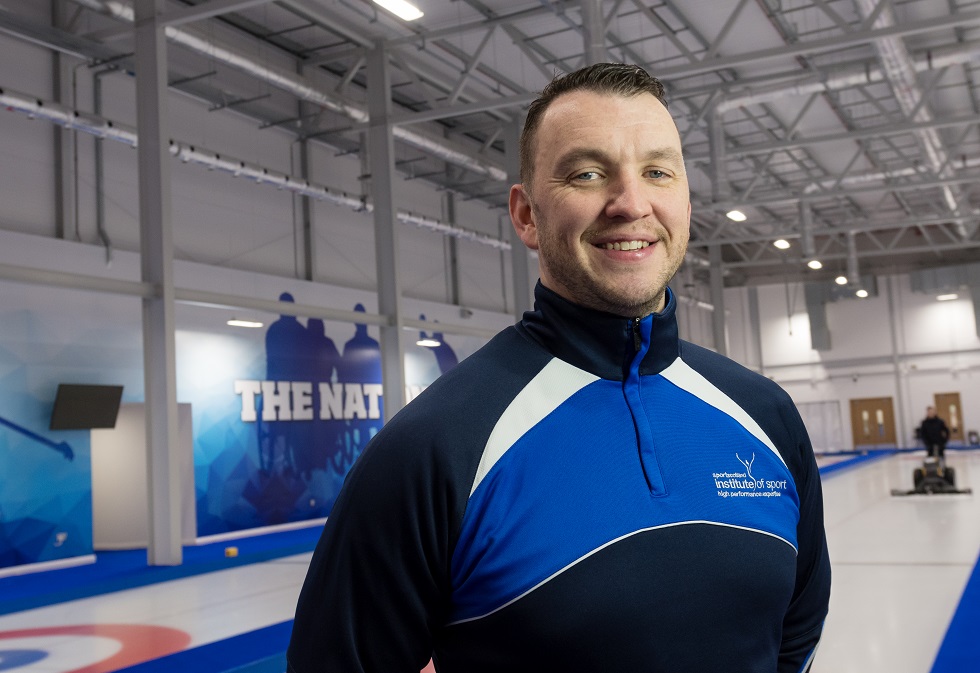
Every athlete returning from injury is supported through a three-step plan:
- Return to participation - being able to return to the gym and do normal, everyday things
- Return to sport - work with the athlete is tailored to the demands of their sport
- Return to performance - technical, tactical, psychological and physical work.
Dave continued: “It sounds complicated but it’s quite a simple thing. Once the plan is set we add some simple benchmarks to achieve during each phase, so you have a clear idea when you’re ready to move on to the next stage."
Lindsay added: “Within each of those phases you sit down with the athlete and other support staff to work out the steps to take to achieve what they are trying to. When they are going through a sticky point, which all of them do, they can refer to the plan and see where they’ve got to, where they need to go and understand the process. Rehab can be very frustrating, demanding, and tiring, and they can get lost in it if they don’t have that clear pathway.
“The first thing that we did was to bring together the whole team - coaching, performance directors, psychology, medicine, physio, physical preparation, everything she required. We also involved her management company and family because they are all part of a full-time athlete’s life and it’s important to include them.
“They also have to understand that they’ll maybe go three steps forward and one step back, so the plan gives them the ability to control things, and input so they don’t feel they’re being dictated to."
Planning and patience
For an athlete used to pushing herself to the limits, Eve found the phased return tough. She said: “The most challenging part for me was being patient. Being as competitive as I am, to be told you’re not going to be on the ice at the start of the season and that the girls are going to be competing while you’re at home doing rehab was difficult. But I knew I had to be patient to get the most out of the recovery period.”
Lindsay added: “Eve has a great work ethic, she knows where she wants to go, what she wants to be and how she wants to do it. With an athlete like that you must understand their drivers.
“Eve is driven but she has been good at following advice and not overdoing things. Rehab is frustrating for athletes, so you can’t just leave them sitting in a flat, you must give them things to fill their time. From the very start she was back in the gym and could see progress which is so important.”
Dave added: “You’ve got to remember you have a human being interacting with the plan, so you need to be sensitive to little changes, making sure you’re not just following the plan for the sake of it. There was a lot of informal touching base to make sure she was coping and for the most part she was ahead of schedule.
“It’s so important that we all work together. If we’re all doing things individually they don’t join up and then it’s difficult for the athlete to see that clear pathway.” 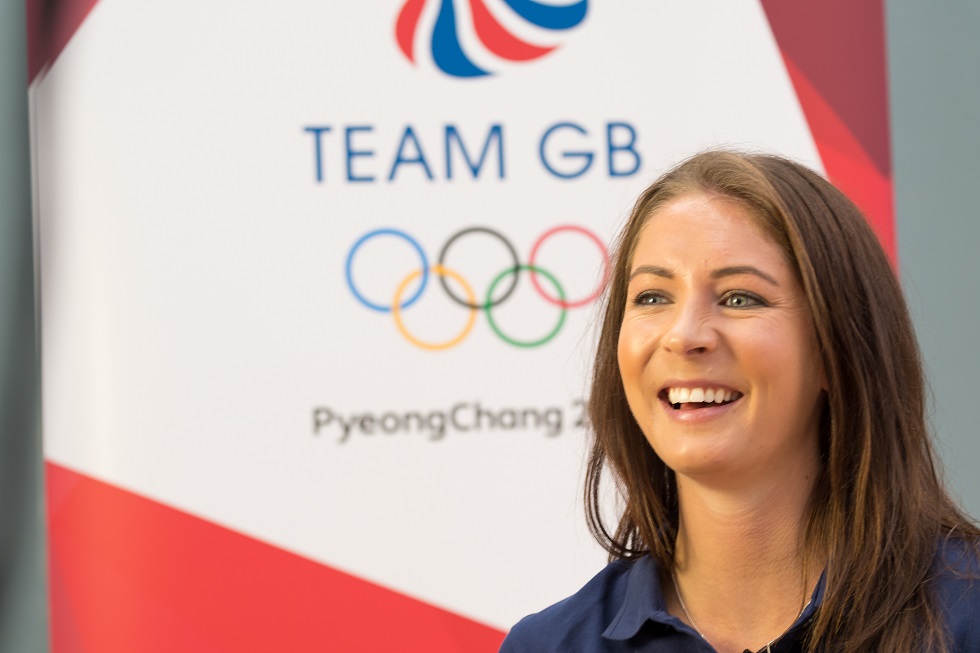
Physically fit
There is a common misconception that curling is not a physical sport, but Dave is clear that Eve’s physical fitness has been a major factor in her rapid return to competition.
He said: “It made a massive difference that she is extremely fit and strong. It meant that when we got back into training, almost as soon as she’d had the procedure, we could train at a fairly high level which keeps the rest of the body fit and healthy.”
Eve agreed, saying: “People have said that because I was physically fit going into the surgery it sped up the rehab process. I always want to be the best at everything I do so I’ve made a pretty good job of my rehab, not skipped any parts of it. I’ve worked with Dave for many years now and he’s had me in the best physical shape I’ve ever been and that’s really helped.”
Managing expectations
As an Olympic bronze medallist and the reigning European champion, expectations were always going to be high for Eve’s return to competition, and that was integrated into the rehab programme.
Eve acknowledged the challenge she faced, saying: “We went into the Europeans with not very high expectations. There are three things that have changed; obviously a new team, I’m going in post-surgery and the pressure of going in as reigning champions.
“There were a lot of things that could hold us back but, as a team, we wanted to go there and play the best that we could. Our goal was qualifying Scotland for the World Championships and anything more would be a bonus.”
Team Muirhead missed out on a European semi-final place by just one shot and Dave acknowledges that was always a risk.
He said: “It’s one thing to get someone returned to play quickly but it just goes back to this being a long-term process. The curling programme, the team, and Eve herself are working towards the next Olympic cycle where we know she’ll be looking to better her previous Olympic performances, so we’ve got to make sure what we’re doing is slow, steady, and clear.”
National coach Dave Murdoch also knows how hard it can be to return from surgery.
He said: “It’s obviously been quite a challenge (for Eve), we’ve not had many hip injuries, but I know from having surgery myself it’s not easy to come back and it is a constant daily struggle. But the combination of all the expertise that Eve’s had access to, and her mentality to want to get back to the top again, means that everything’s been really well managed.
“Are things perfect? Possibly not, that’s what happens when you come back from surgery, it will take time for it to feel normal in some ways. We’ve just got to be realistic, take time and make sure her health and wellbeing are key to her recovery.”
Great to be back
Eve added: “It feels really good to be back on the ice. It was always going to be a daunting experience the first time but to be back sliding and one step further, competing, is special. It’s taken a lot of hard work, not only by me, but by a lot of support staff at the sportscotland institute of sport within that rehab.
“The institute have helped me massively. If it wasn’t for those guys I wouldn’t be in the position I’m in today.
"I know for a fact I wouldn’t be back competing, I don’t even know if I’d be curling any more, to be honest. I’m so thankful for all the time they’ve put in.
"It’s not just working within their hours, they go out of their way to check if I’m OK at weekends, they’ll buy things to help the recovery process and it’s little touches like that that make you realise you have a support team behind you and that they value me as much as I value them.”
Main photograph: Graeme Hart, Perthshire Picture Agency
Find out more
- The sportscotland institute of sport is the 'team behind the team' for many of Scotland's top athletes
- Want to get involved in curling? Scottish Curling would love to hear from you
- Keep up to date with all the action from the top teams on the British Curling website
- National coach Dave Murdoch previews the season ahead

